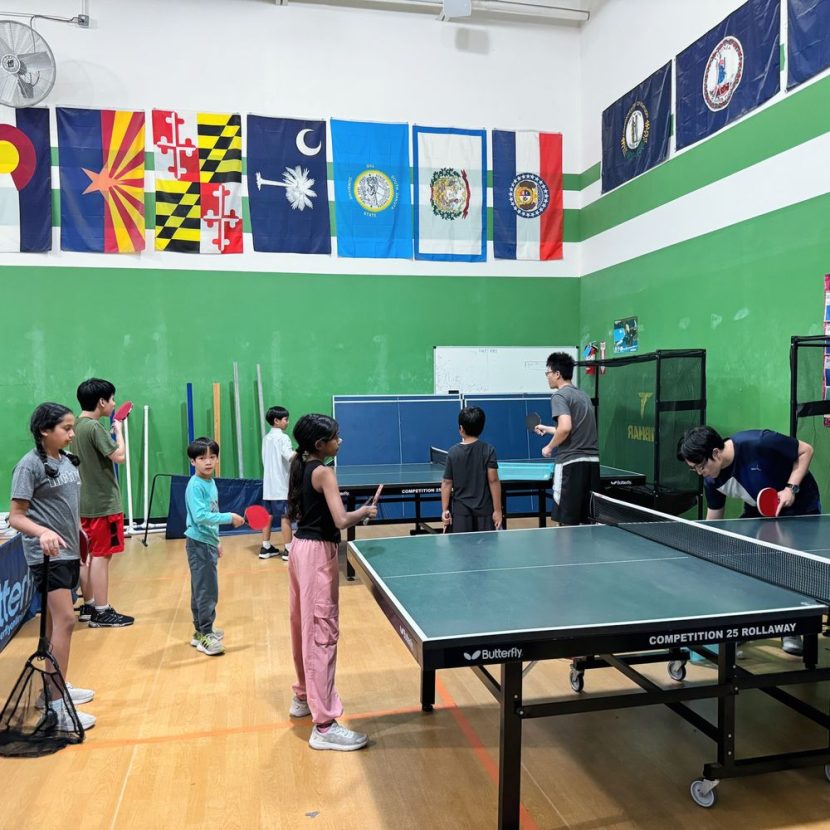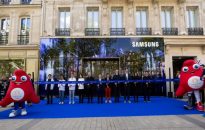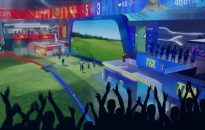Long before he started building Nvidia into a $3 trillion tech behemoth, billionaire co-founder and CEO Jensen Huang had a much less predictable dream. As a teen, Huang reportedly wanted to be a table tennis champion so badly that he scrubbed floors at a Portland, Oregon-area equipment store called Paddle Palace to earn money to […]


Long before he started building Nvidia into a $3 trillion tech behemoth, billionaire co-founder and CEO Jensen Huang had a much less predictable dream.
As a teen, Huang reportedly wanted to be a table tennis champion so badly that he scrubbed floors at a Portland, Oregon-area equipment store called Paddle Palace to earn money to chase that dream, journalist Tae Kim wrote in his book “The Nvidia Way,” which published last week.
Huang even competed in national tournaments and finished third in junior doubles at the U.S. Open Table Tennis Championships at age 15, the Seattle Post-Intelligencer reported in 2005. “I loved that sport, but I never loved it more than academics,” Huang told the Post-Intelligencer.
Today, Huang is worth an estimated $115 billion, according to Bloomberg. The 61-year-old’s net worth has multiplied alongside Nvidia’s market value in recent years, as the tech industry’s artificial intelligence boom sparked demand for the company’s computer chips.
DON’T MISS: The ultimate guide to earning passive income online
Born in Taiwan, Huang moved to the U.S. in the early-1970s and his family eventually settled near Portland. He “worked the graveyard shift at a Portland Denny’s and hung out at Paddle Palace,” The Oregonian reported in 2008.
There, Huang’s skills caught the eye of Paddle Palace owner Lou Bochenski, whose daughter Judy was a table tennis champion and member of the U.S. national team. The elder Bochenski “considered it his duty to help discover promising young table-tennis players and develop them into national-level talents,” Kim wrote in “The Nvidia Way.”
Bochenski was taken with Huang’s table tennis skills, calling the then-teenager “perhaps the most promising junior ever to play table tennis in the Northwest” in a letter that Sports Illustrated published in January 1978.
Huang was a straight-A student with an intense work ethic who “earns his money to travel to tournaments, to take part in clinics and to play table tennis by scrubbing floors here at the Paddle Palace,” Bochenski wrote.
Huang has occasionally spoken about the lessons he learned while attempting to become a table tennis champion. As a teenager, he once competed in a national tournament in Las Vegas, where — instead of resting ahead of the tournament — he stayed up late to walk the Las Vegas Strip, he told the Post-Intelligencer.
Huang couldn’t recall how he performed in the tournament, he said — only that he didn’t win, which taught him the importance of maintaining focus to achieve your goals.
“When you’re 13 or 14 years old and you go to Las Vegas for the first time, it’s hard to focus on the match,” said Huang, adding: “To this day, I regret not being more focused on the tournament.”
Similarly, Huang frequently talks about the importance of embracing, and learning from, your failures to develop resilience. Without that trait, he never would’ve overcome the challenges and setbacks of Nvidia’s early days to build it into a massively successful business, he’s said.
“Unfortunately, resilience matters in success,” Huang told students at Stanford University in March. “I don’t know how to teach it to you, except for, I hope suffering happens to you.”
Want to make extra money outside of your day job? Sign up for CNBC’s online course How to Earn Passive Income Online to learn about common passive income streams, tips to get started and real-life success stories.
Plus, sign up for CNBC Make It’s newsletter to get tips and tricks for success at work, with money and in life.














